Europe

Environmental Activism in the Soviet Union
On April 26, 1986, an explosion at the Chernobyl Nuclear Power Plant in Ukraine led to the radioactive contamination of the surrounding countryside and to radioactive fallout throughout Eastern and Western Europe.
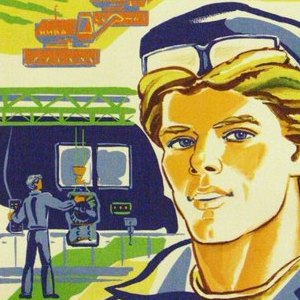
Perestroika and the changing Soviet workforce
One of Mikhail Gorbachev's most famous reform movements was perestroika (reconstruction), an attempt to rebuild the Soviet economy, which had been stagnating for more than a decade.
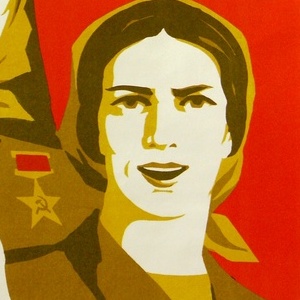
Traditional Image of Soviet Women
Soviet propaganda posters presented positive images of healthy, active people engaged in useful service to the state, including women. In this poster from 1974, three women, with their hair covered with a traditional kerchief, are depicted alongside a clear slogan: "Soviet Women!

The Butcher Shop, Warsaw
In the 1980s average citizens of East European countries faced many challenges, including daily difficulties created from ongoing and severe shortages of consumer goods. Buying such necessities as food, clothing, and hygiene products was a recurring obstacle to average consumers.

Shopping queue in Wrocław
Upheavals in political, economic, social, and cultural conditions in the 1980s led to many challenges in everyday lives of average citizens of East European countries. Buying such necessities as food, clothing, and hygiene products posed serious difficulties to consumers.

Shame to the loafer and the drunkard
Before the era of the Gorbachev reforms, social and health problems could not be easily discussed in the Soviet Union. The emphasis for public health was on keeping people healthy so that they could work better and more productively.

Drug Abuse is Suicide
One of Mikhail Gorbachev's most famous reform movements was glasnost' (openness), which allowed partial freedom of the press to address social problems and corruption within the Soviet Union.
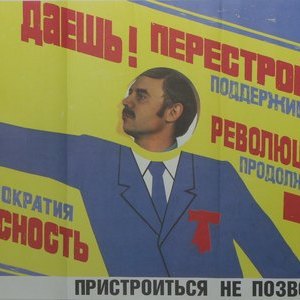
Let's Go! Support Perestroika!
Mikhail Gorbachev began a parallel program of reform for the Soviet Union: perestroika (reconstruction) and glasnost' (openness). His intention, however, was for a state-directed movement that would keep the Communist Party in firm control.
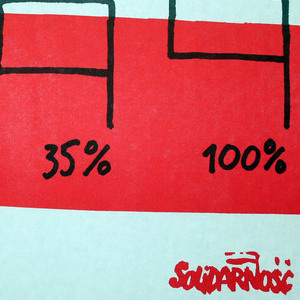
Polish Voting Rights
This campaign poster for the Polish Solidarity movement shows Polish voters what was at stake in the upcoming elections in June 1989. Under the terms of the arrangement negotiated with the Communist party, 35% of the seats in the Lower House of the parliament (Sejm) were to be freely contested.
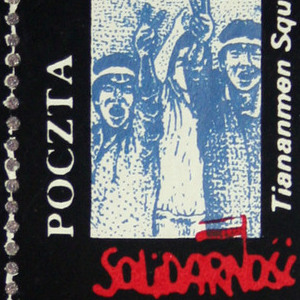
Solidarity Commemorates Tiananmen Square
After Solidarity assumed the political leadership of Poland, the new government issued these stamps to commemorate the student protests in Tiananmen Square in China in the Spring of 1989. Postage stamps may be part of everyday life and the images here served an important political purpose.